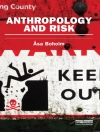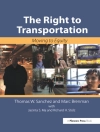Contributing to the growing debate on the need for sustainable water use and management, with concrete examples of new approaches, concepts, arguments, methods and findings which illustrate how this can be achieved, this book will be attractive for large groups of readers familiar with one or more of the themes it tackles, and to the general public. Within this context, the book makes use of many tables and graphics, which bring the many messages together. This approach is intended not only for those working on water matters (e.g. bureaucrats, water managers, policymakers, journalists, etc.) and interested in water management issues and sustainability at large, but also for students of water management, water politics, environmental policy, water economics, water engineering and sustainability studies. Located at the crossroads of two key phenomena: sustainability and water, this book brings forward academic research and discussions on water efficiency, new technologies, and the water-agriculture nexus. It also benefits readers by tackling matters related to trans-boundary cooperation on water (including rainwater) and river-basin management, pricing issues, participatory water management, and the role of women in sustainable water use, amongst others.
İçerik tablosu
Ethics, Sustainability and Water Management: A Canadian Case Study.- Water as an element of urban design: Drawing Lessons from four European Case Studies.- Water Consumption in Dormitories: Insight from an Analysis in the United States.- Water Resource Management in Larisa: a “Tragedy of the Commons?”.- Collective versus household iron removal from groundwater at villages in Lithuania.- The Contribution of Education for Sustainable Development in Promoting Sustainable Water Use.- Water security problems in Asia and longer term implications for Australia.- Social networks in water governance and climate adaptation in Kenya.- Eco-feedback technology’s influence on water conservation attitudes and intentions of university students in the USA: an experiment design.- Farm Management in Crop Production Under Limited Water Conditions in Balkh, Afghanistan.- Sustainability of Effective Use of Water Sources in Turkey.- Moving towards an Anthropogenic Metabolism-based and Pressure-oriented Approach to Water Management.- Sustainable Water Management Defies Long-term Solutions.- Sustainable Water Use – Finnish water management in sparsely populated regions.- The Education, Research, Society and Policy Nexus of Sustainable Water Use in Semiarid Regions – A case study from Tunisia.
Yazar hakkında
Professor Walter Leal Filho has a Ph D and a DSc in environmental technology, plus various honorary doctorates for his work on sustainable development. He is the Head of the Research and Transfer Centre „Applications of Life Sciences“ at the Hamburg University of Applied Sciences, where he is in charge of a number of European projects. He has authored, co-authored or edited over 70 books on the subjects of environment, technology and innovation and has in excess of 200 published papers to his credit. Prof. Walter Leal Filho teaches environmental management at many European universities. He is also the editor of the Journal ‘Management of Environmental Quality” and founding editor of the ‘International Journal of Sustainability in Higher Education” and “Environment and Sustainable Development”. He is a member of the editorial board of ‘Environmental Awareness’, and ‘Sustainable Development and World Ecology’. His work on sustainability has primarily focused on the institutional aspects and tools for promoting sustainable development, along with he has been able to monitor the debate on water issues.
Dr. Vakur Sumer is currently a member of faculty at Department of International Relations, Selcuk University, Konya, Turkey. Sumer published several journal articles, and three book chapters along with a forthcoming book from I.B. Tauris (Water Dimension in EU-Turkey Relations). He has attended numerous international and national academic conferences. Sumer has received his Ph.D. on International Relations, from Middle East Technical University, Ankara, Turkey. He was a visiting scholar in United States, at University of California, Davis, Department of Environmental Science and Policy during 2008-2009. He was also a visiting fellow at Max Planck Institute, Heidelberg, Germany in April 2012. He has been studying water politics, transboundary rivers, and environmental problems related to water use and is convinced of the need forpublications on sustainable water use and management. Sumer is a member of ISA (International Studies Association) and Environmental Studies Section. He was given an award by TUBITAK for his publication in “Water International”.












